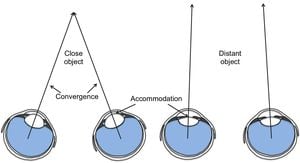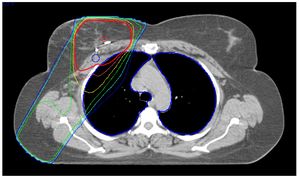The Trump administration's recent decision to remove major media outlets from dedicated office spaces within the Pentagon has ignited significant controversy and concern among journalists and media organizations. This unexpected move, announced last week, affects high-profile outlets like The New York Times, National Public Radio (NPR), NBC News, and Politico. The Pentagon cited the introduction of its 'New Annual Media Rotation Program' as the rationale for this sweeping change.
The objective of the rotation program is to allow different media organizations to take residency at the Pentagon on an annual basis, thereby purportedly broadening the media presence and providing opportunities for lesser-known outlets. Under this initiative, as stated in memos circulated to the press, the previously occupying media organizations must vacate their spaces by February 14, 2025. Channels like the New York Post, One America News Network, and Breitbart News have been included as replacements.
This plan has raised eyebrows not just for its contents but also for the manner it has been executed. The Pentagon Press Association voiced their unease, arguing the reevaluation seems to affect professional media, which, by tradition, has maintained access to cover military operations and defense policy transparently. The association noted, "We are deeply concerned by the Defense Department's decision to remove certain media organizations from their dedicated spaces at the Pentagon," highlighting the potential threat to press freedom and accountability.
An NBC News spokesperson expressed disappointment, stating, "We’re disappointed by the decision to deny us access to a broadcasting booth at the Pentagon we've used for many decades. We will continue to report with the same integrity and rigor NBC News always has." Other evicted outlets, such as NPR, have also refrained from extensive comments pending the transition.
The matter has been met with criticism from several quarters. According to reports, journalists within the affected outlets believe the shake-up undermines their ability to report on defense matters effectively. Many fear the removal of established outlets reflects political favoritism, targeting those media deemed less aligned or favorable to Trump and his administration's narrative. This sentiment has been echoed across the media community, with calls for greater transparency and accountability permeated among news organizations.
Former Fox News host Pete Hegseth, noted for his proximity to Trump and his well-documented loyalty to Republican ideals, has been appointed to lead the Pentagon as this media reshuffle unfolded. Historically, figures with such backgrounds have been linked to unyielding oversight and criticism of mainstream media. The evictions highlight the increasing tensions between traditional media and alternative outlets, especially those supportive of Trump's agenda. Hegseth's leadership role has compounded these concerns, casting doubts about the Pentagon's commitment to balanced media representation.
Supporters of the move within the administration argue it’s high time the Pentagon embraced diverse viewpoints by incorporating outlets like the New York Post and the HuffPost, which they believe could generate fresh perspectives on defense and military matters. They state the rotation program reflects this commitment to adapting to the changing media environment.
Yet, critics insist the decision diminishes the independence and scrutiny necessary for effective journalism, especially concerning national security. Mike Balsamo, president of the National Press Club, underscored the ramifications tied to restricting journalist access to government operations. He asserted, "Any action restricting journalists' ability to report on U.S. government operations alarms all who value transparency and press freedom." Balsamo's comments echo concerns about maintaining journalistic integrity and the public's right to know.
The aforementioned media outlets have been integral to oversight of military actions, often raising pressing questions about accountability and governance within the Department of Defense. The Pentagon Press Corps' role as the eyes and ears of the public has been staunchly defended; advocates argue it is foundational to democracy and transparency.
Looking forward, the Pentagon's decision stands as both contentious and revelatory—a marker of the broader conflicts at play between traditional media establishments and newer platforms, complicated by political allegiances. Critics are likely to continue voicing concerns about the broader implications of these changes for press freedom and journalistic obligations unraveling within the corridors of power.
It remains uncertain how this rotation will practically impact the coverage of military affairs going forward. The established outlets’ continued presence as members of the Pentagon Press Corps offers some reassurance. Yet, the impending loss of dedicated office space undeniably alters the dynamics of reporting on defense issues, emphasizing the importance of advocacy for media access, especially during pivotal moments of national interest.



